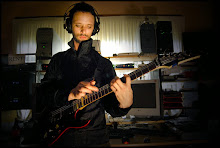Audio Arts – Week 11 & 12 – “Elder Hall and Orchestra Recording”
As you can see on the created image, I have gone with a similar layout to Ray’s from Friday’s concert, but made some subtle changes. Given our selection of Mic’s at EMU, I feel this type of recording would benefit from the use of boutique condensers above all else.
Starting at the front of stage, I will have a spaced pair of Neumann U87’s to compliment the fixed A/B configuration that lives in Elder hall. The height of these should be around 2 metres above the heads of seated performers but I plan to angle the diaphragms around 45 degrees in toward each respective string section. Cardioid polar patterns will be used.
Rather than spot micing the bass strings, I have opted to use the infinitely sensitive Rhode NTV in a similar position of height to the U87’s, but toward the rear of the bass string group with the diaphragm facing inward once again. Mirroring this on the left of stage will be a Neumann U89 that should reinforce the high strings nicely. The U89 will be set to omni for consistency with the Rhode NTVs preset pattern.
The woodwind will be semi spot miced, with 2 Neumann KMi84’s angled parallel to the floor and only slightly above the heads of the woodwind performers. Hopefully mimicking Ray’s technique with different mic’s here should reinforce the woodwind without boosting the horns too much. The Rhode NTV on the bass strings should compliment the U87s in picking up a nice degree of ambient room and audience noise.
This takes care of our maximum eight inputs at Elder Hall. The outputs should be sent via the fire-wire desk into Garage Band, Cubase SX or similar for capture. The session must be at least 24 bit / 48KHz in sample depth/width though. I was very surprised that Ray was going with a standard Red Book format on Friday as the lower dynamic range could be a real problem with such dynamic music.
Depending on the piece to be performed, there may be a need to follow a score during recording, for the purpose of gain riding. Hopefully this will not be the case, but the Rhode NTV is particularly sensitive, and can overdrive easily.
Reference:
Haines, Christian. “Audio Arts – Week 11 – Elder Hall and Orchestra Recording.” Practical excursion presented at Elder Hall, University of Adelaide, 23rd of May 2008.



1 Comments:
Nice Cardioid-graffling :-)
Post a Comment
<< Home